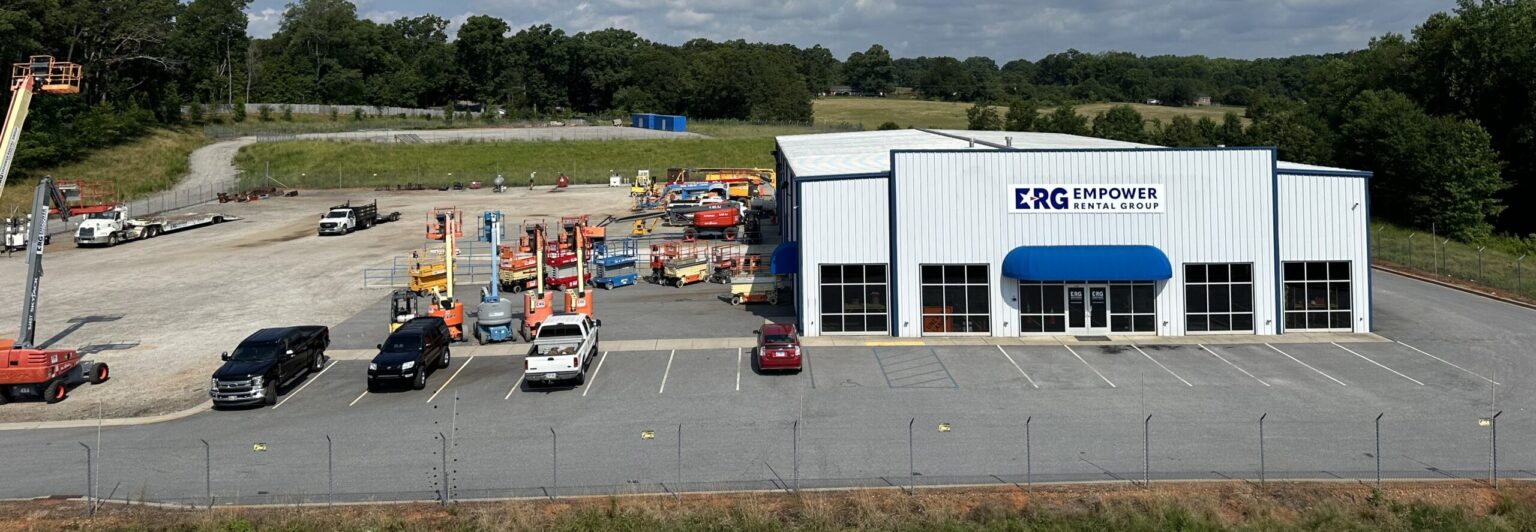Comprehending the Cost-Effectiveness of Heavy Tools Rental Providers for Numerous Industries
As industries progressively seek to optimize their functional expenses, the analysis of hefty equipment rental solutions arises as a critical factor to consider. What variables should organizations consider in this formula, and how do real-world scenarios brighten the more comprehensive ramifications?
Benefits of Heavy Tools Rental

The countless advantages of heavy equipment service make it an attractive choice for many organizations in the construction and industrial sectors. One of the main advantages is flexibility; companies can choose equipment tailored to their details task demands without the commitment of long-term possession. This adaptability enables for the efficient allocation of sources, making it possible for firms to scale procedures based upon demand.
Additionally, renting out hefty devices considerably reduces upkeep and storage space costs. Rental companies frequently deal with routine upkeep, ensuring that the devices remains in optimal condition and certified with safety guidelines. This setup eases the burden on services that might not have the experience or resources to preserve intricate equipment.
In addition, access to the current modern technology is another noteworthy benefit. Rental services often upgrade their supply, providing companies with advanced tools that boosts productivity and efficiency. This gain access to can bring about improved project results and competitive advantages.
Last but not least, the rental model enables services to conserve funding, liberating funds that can be rerouted towards various other operational requirements or investments. Collectively, these benefits contribute to the growing pattern of devices leasing as a calculated selection for numerous sectors.
Expense Comparison: Leasing Vs. Purchasing
Reviewing the economic implications of hefty devices purchase is crucial for services considering their alternatives. The decision to lease or get hefty devices can substantially influence a firm's budget and functional capacities.
When comparing costs, renting usually offers a lower in advance financial commitment. Firms only pay for the period of devices usage, maximizing capital for other investments. Additionally, rental contracts usually consist of maintenance and support, more decreasing unanticipated expenses related to ownership.
On the other hand, purchasing devices requires higher preliminary prices, along with continuous expenditures such as storage, upkeep, and insurance coverage. Ownership may be a lot more favorable for companies with regular, long-term usage, as it can cause lower per-use expenses over time. Nonetheless, this option locks up capital and may cause depreciation problems as modern technology progresses.
Inevitably, the option in between renting and purchasing rest on a company's particular demands, monetary scenario, and task duration. Conducting a detailed expense evaluation, including usage frequency and the complete price of possession, is crucial in making an educated choice that straightens with the company's critical purposes.
Industry-Specific Rental Advantages
Flexibility is a vital advantage of industry-specific heavy tools rental solutions, enabling businesses to adjust swiftly to altering job demands. Different sectors have one-of-a-kind requirements, and customized rental solutions can he has a good point address these certain needs successfully. Construction business profit from equipment that is lined up with certain project phases, whether it includes excavation, training, or concrete job.
In the landscape design sector, seasonal shifts may demand differing equipment types, such as mowers in springtime and snowplows in winter season. Leasing specialized equipment enables firms to access the most recent modern technology without the concern of possession.
Additionally, sectors such as mining and oil and gas typically encounter fluctuations popular based upon global markets. Industry-specific rentals offer a critical advantage, allowing these firms to scale operations up or down flawlessly.
Furthermore, renting out permits services to mitigate the risks connected with equipment obsolescence, ensuring access to modern-day, reliable equipment that satisfies governing criteria. By leveraging rental solutions customized to their sector, organizations can improve efficiency and focus on core competencies, inevitably causing improved functional efficiency.
Financial Implications of Leasings
Comprehending the economic effects of hefty equipment rentals is essential for businesses aiming to maximize their functional spending plans. Renting out devices can dramatically lower funding expense, as firms stay clear of the huge upfront costs associated with purchasing equipment. This strategy allows businesses to designate sources more effectively, buying various other operational areas or enhancing capital.
Furthermore, rental services commonly include upkeep and repair work, which better reduces unpredicted expenditures. Business can budget a lot more accurately, knowing that rental fees generally cover these solutions. This predictability help in monetary preparation and source allowance.
In addition, the versatility of rental arrangements allows companies to scale their tools usage based on job needs - forklift rental in Wade Hampton, SC. During top periods, leasing added equipment can prevent delays and allow timely job conclusion without the worry of long-term ownership costs
Conversely, companies need to additionally take into consideration the possibility for greater collective expenses over time if rentals are extended. As a result, a detailed cost-benefit analysis is important to determine whether renting or purchasing equipment lines up much more closely with long-term financial objectives.
Inevitably, recognizing these monetary ramifications can empower organizations to make enlightened decisions that enhance operational performance and earnings.
Study and Real-World Instances
Situation researches and real-world examples offer useful understandings into the useful applications of hefty tools rental solutions across various markets. A building and construction company in Texas opted for rental services to manage a massive framework task.
In the oil and gas sector, a company operating in North Dakota used rental solutions for specialized boring tools. This approach not just minimized downtime browse this site but likewise enabled see it here them to gain access to modern technology without the burden of ownership expenses. As an outcome, functional performance boosted, and task timelines were met regularly.
In a similar way, a landscape design business in California leveraged services to take care of seasonal spikes sought after. By renting equipment such as skid steers and chippers, they handled to scale operations successfully without sustaining lasting responsibilities. These examples show that hefty equipment rental solutions can significantly improve functional performance, decrease prices, and give flexibility, making them a critical choice throughout various industries.
Final Thought
In final thought, the cost-effectiveness of hefty tools rental services substantially enhances operational effectiveness across numerous sectors. Overall, the combination of rental solutions within functional spending plans presents a compelling instance for companies intending to maximize performance while managing monetary threats effectively.
